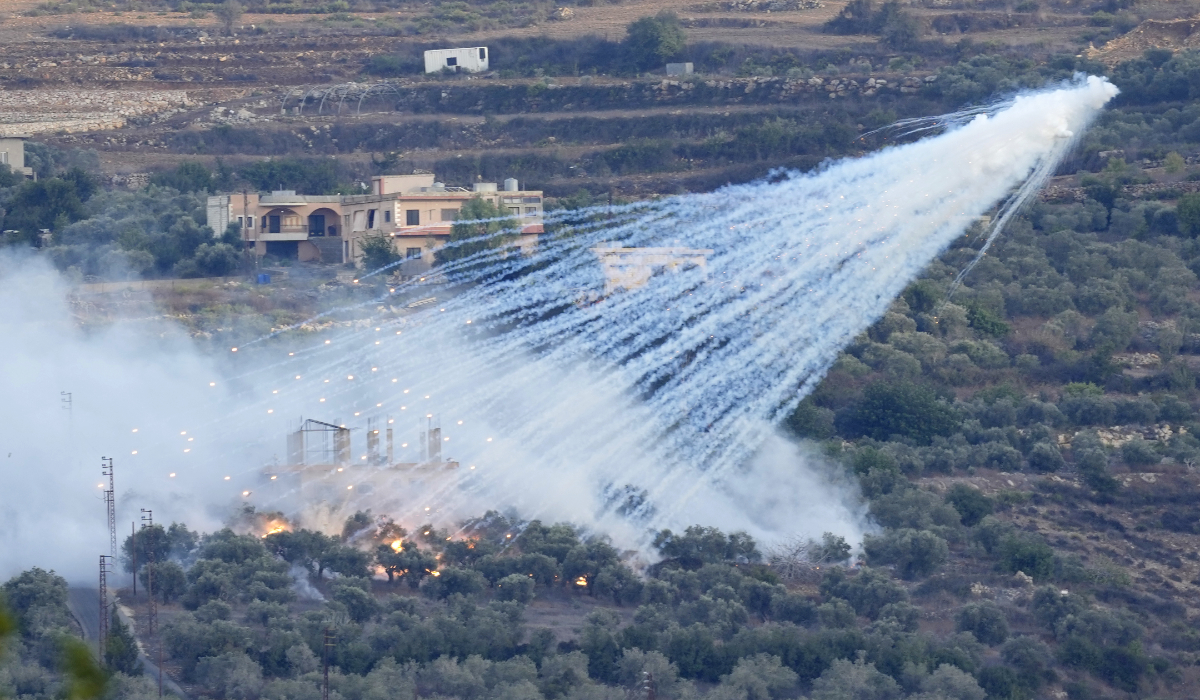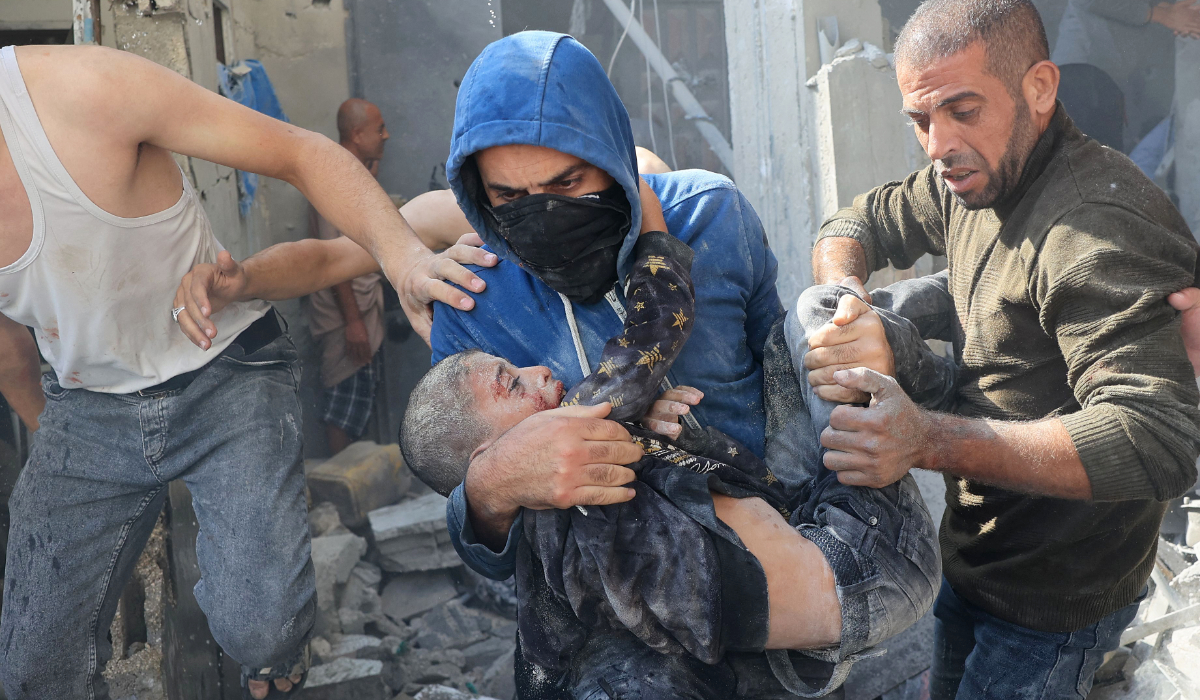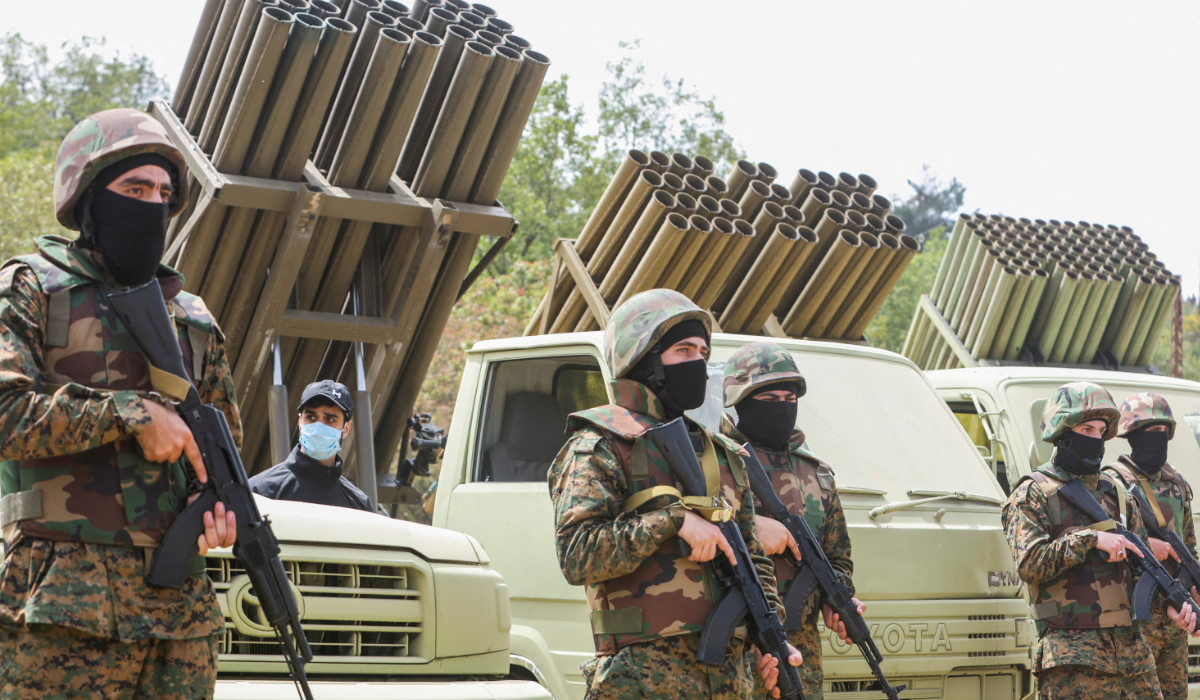DAVOS: Najib Mikati, Lebanon’s caretaker prime minister, stated on Tuesday that Israel’s latest assaults on Lebanese soil, in addition to the continuing hostilities in Gaza, offered the area with two attainable outcomes — win-win or lose-lose.
In an interview with Arab News on the World Economic Forum in Davos, Mikati stated the area confronted a stark alternative between a diplomatic decision to the area’s many overlapping crises or a significant escalation.
“We are confronted with two options at this time: Either a win-win answer or a lose-lose one,” he stated. “In the lose-lose situation, a region-wide struggle can be declared, whereas the win-win situation would contain the required diplomatic answer.”
Mikati, who’s heading Lebanon’s first delegation to the annual assembly since 2019, when the nation’s monetary disaster started, stated his nation favored a diplomatic answer that will keep away from dragging the area right into a pricey struggle.
“Since the struggle erupted in Gaza, now we have been calling for a ceasefire, as it might function the muse for any potential answer,” he stated.
“As quickly as a ceasefire is reached in Gaza, we are going to discover an answer geared toward reaching sustainable and everlasting stability in south Lebanon, in accordance with the UN Resolution 1701, which have to be totally utilized.”
UN Security Council Resolution 1701 ended the 2006 struggle between Israel and Lebanon’s Hezbollah militia. However, because the struggle in Gaza started on Oct. 7, Israeli forces and Hezbollah fighters have traded hearth alongside the shared border.
Our biggest worry is that these violations will result in a struggle — a protracted and devastating one for all concerned.
Najib MikatiLebanon’s caretaker prime minister
In November, Mikati proposed a three-step plan for peace in Gaza, beginning with a five-day pause in hostilities.
During this pause, Hamas would launch among the hostages it seized throughout its Oct. 7 assault on southern Israel, whereas Israel would permit extra humanitarian help into Gaza, the place Palestinian civilians have endured months below siege.
Meanwhile, world leaders would start working in the direction of a global summit to implement a everlasting two-state answer to the decades-old Israeli-Palestinian battle.
However, Israel has been reluctant to halt its navy operation in Gaza. Instead, it seems to have broadened the scope of its mission to incorporate precision airstrikes towards Hamas and Hezbollah commanders in Lebanon.

Saleh Al-Arouri, the deputy chief of Hamas’s political bureau and founding father of the group’s armed wing, the Qassam Brigades, was killed in a suspected Israeli strike alongside a number of of his henchmen at an house in a Hezbollah-controlled neighborhood in Beirut on Jan. 2.
Then, on Jan. 8, Wissam Al-Tawil, deputy head of Hezbollah’s Radwan Force, was additionally killed in a suspected Israeli drone strike on a automobile within the southern Lebanese city of Khirbet Selm.
This was adopted on Jan. 9 with the loss of life of Ali Hussein Burji, commander of Hezbollah’s aerial forces in southern Lebanon, additionally in Khirbet Selm in one other suspected Israeli airstrike.
The killings on Lebanese soil have solely compounded the specter of escalation, with the change of missiles and drone assaults alongside the shared border persevering with to accentuate.

Israeli shelling has burned 462 hectares of agricultural and forested land, in keeping with the Lebanese Ministry of Environment, and sparked an exodus from southern villages near the border with Israel.
Likewise, Israeli civilians dwelling near the border have been relocated, fearing an assault akin to the Hamas assault of Oct. 7.
An Amnesty International report confirmed that “the Israeli military fired artillery shells containing white phosphorus, an incendiary weapon, in navy operations alongside Lebanon’s southern border” between Oct. 10 and 16.
Furthermore, movies verified by Human Rights Watch in October indicated that Israel had used white phosphorus in navy operations in south Lebanon and Gaza on October. 10 and 11, respectively.

The monitor stated on Oct. 12 that these assaults positioned civilians “prone to critical and long-term accidents.”
On Jan. 9, Lebanon filed a proper grievance to the UN Security Council accusing Israel of violating Resolution 1701, citing the usage of prohibited weapons containing white phosphorus.
International humanitarian legislation prohibits the usage of white phosphorus in, or in shut proximity to, populated civilian areas or infrastructure.

People uncovered to white phosphorus can endure respiratory injury, organ failure and different life-changing accidents. Burns brought on by the substance are extraordinarily tough to deal with and will be deadly when affecting simply 10 % of the physique.
“We have filed a grievance with the UN on the kind of weapons used and different violations dedicated by Israel,” Mikati advised Arab News. “Our biggest worry is that these violations will result in a struggle — a protracted and devastating one for all concerned.”
Lebanon has filed further complaints towards Israel on the UN Security Council, together with over the suspected focused killing of Hamas commander Al-Arouri.
If an all-out struggle breaks out between Israel and Hezbollah, many in Lebanon worry it might be much more devastating than the 2006 battle, which left at the least 1,100 Lebanese useless and severely broken civilian infrastructure, together with Rafik Hariri International Airport.

Since 2019, Lebanon has been grappling with a spread of overlapping political and financial crises, which have pushed some 80 % of the inhabitants into poverty. The nation’s monetary disaster has been deemed one of many world’s worst because the 1850s.
However, the Lebanese authorities has didn’t implement essential reforms demanded by the International Monetary Fund to deal with the foundation causes of the nation’s financial issues.
Parliament has additionally repeatedly failed since Oct. 2022 to elect a brand new president, with its twelfth unsuccessful try in June final yr.
“More than 14 months have handed with out the election of a president,” Mikati advised Arab News, including that he hoped “all political entities in Lebanon (would) exhibit the mandatory (stage of) consciousness to expedite the method.”
In the context of regional tensions, nevertheless, Mikati appeared uncertain about progress within the brief time period. “At the current time, electing the president of the Lebanese republic is a prime precedence, however there have been new developments,” he stated.
“This is very vital throughout these difficult occasions within the area.”


